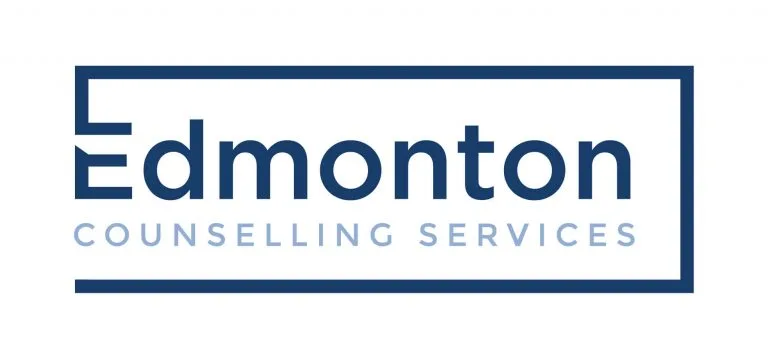Substance abuse has been a widespread issue in various industries, especially safety-sensitive industries such as transportation, construction, and heavy machinery operations.
SAP (Substance Abuse Program) helps individuals recover and return to work after a substance-related violation.
A substance-related violation means breaking a rule or law due to the influence of a substance like drugs or alcohol, which also includes behaviours like driving under the influence that may influence illegal substances. Moreover, they might feel intoxicated at work, especially in the prohibited area.
Such conditions require the assistance of trained professionals to ensure workplace safety, maintain regulatory Compliance, and support individuals’ recovery journeys. Take assistance from a Certified Substance Abuse Professional to achieve mental well-being.
In this blog, we will learn about SAP and how it helps employees return to work after a substance-related violation.
What Is a Substance Abuse Professional (SAP)?
Workplace drug and alcohol policy violations lead professionals to require guidance from Substance Abuse Professionals who possess certification to direct these individuals. Public safety needs the implementation of SAPs to verify minimum substance testing requirements in different industries.
Commercial drivers who fail drug or alcohol tests or refuse testing go through qualified SAPs for their unaffected evaluation.
A commercial driver needing assessment must follow strict procedures at a qualified SAP after failing an alcohol or drug test or refusing one. SAPs are trained to evaluate substance use conditions along with dependency severity to establish an employee’s safe return by using appropriate support and testing measures.
Highly qualified substance abuse professionals must complete training, including degrees or certifications in psychology, social work, or addiction counselling. SAPs must also complete continuous training courses and pass examinations to maintain their professional qualifications.
Multiple professional backgrounds meet the requirements for Substance Abuse.
Professionals through qualifications such as:
- Licensed physicians
- Certified social workers or psychologists
- Employee assistance professionals (EAPs)
- Certified addiction counselors
Most SAPs seek additional training that addresses DOT regulations and substance abuse themes to prepare them for workplace scenarios.
The Role of an SAP in Substance Abuse Recovery:
SAP professionals undertake various duties that reach past regulatory compliance requirements. Substance abuse professionals deliver indispensable support services to workers who are healing from addiction problems during their return-to-work framework in a secure manner.
Substance Abuse Professionals must perform four main duties, which include:
1. Conducting SAP Evaluation:
The initial response to employee policy violations related to workplace substance use necessitates thorough evaluations. The SAP assesses “personal substance use” records in conjunction with mental health tests, work performance results, and personal details to determine the severity of the situation. This evaluation process generates essential insights for developing treatments that align with specific needs.
The employee needs to provide complete openness about their past substance use activities during this evaluation.
A SAP will develop ideal treatment or rehabilitation strategies when clients fully disclose their situations.
2. Developing a Tailored Treatment Plan:
Depending on specific needs, the SAP uses evaluation results to create treatment recommendations, including counselling programs, education sessions, or more substantial rehabilitation services. This plan aims to address the origins of substance abuse, equip individuals with addiction recovery abilities, and stop further infractions.
The treatment plan recommends follow-up tests after recovery to verify that employees maintain their sobriety throughout the healing process. The SAP oversees employee progress while providing continuous support under the established plan.
3. Monitoring Progress and Ensuring Compliance:
The SAP functions as a continuous oversight component in recovery. It checks the employee’s advancement while enforcing Compliance with their treatment document. The SAP facilitates communication between employees, treatment providers, employers, and other professionals registered in the recovery process.
4. Evaluating Readiness to Return to Work:
SAP’s one of the vital duties is to confirm that employees should get ready to come back to work. The determination to return to work depends on completed treatment requirements alongside a commitment to staying sober.
Return to safety-sensitive work roles is possible only for individuals who have passed the SAP evaluation.
The SAP role requires employees to wait for medical clearance before returning to work. It also ensures work safety for both employees and others. These specialists’ roles become vital in ensuring public safety because impaired drivers in transportation remain dangerous to public health.
Why SAPs Matter in the Workplace?
Workplace safety, along with substance abuse risk reduction, depends on Substance Abuse Professionals who serve critical functions in DOT-compliant industries. These experts help prevent accidents at work through their work while enhancing performance levels and sustaining a healthier workplace environment.
Multiple factors make SAPs an essential resource for various workplace needs.
- SAPs help organizations meet their obligations under DOT guidelines and related industrial standards when conducting drug and alcohol testing programs. Keeping the business within legal bounds together with avoiding legal complications depends on this vital requirement.
- Through their substance abuse intervention program, SAPs help minimize workplace accidents by addressing substance abuse issues at their early stages. The SAP implements necessary steps to validate employee readiness for safe work return and their ability to perform their duties with safety in mind.
- SAP’s mission extends past regulatory Compliance since these entities deliver significant assistance to workers who need help addressing their substance use issues. The staff members’ main responsibility involves leading employees in their recovery journey by providing guidance for career and life reconstruction.
The correct implementation of return-to-duty protocols, together with suitable treatment referrals by SAPs, decreases workplace legal consequences and incidents linked to substance abuse.
Becoming a Substance Abuse Professional:
Substance Abuse Counselor Certification and the Substance Abuse Counseling Certification Online program are ideal entry points for individuals wanting to become SAPs or certified substance abuse professionals. These programs provide education, training, and knowledge about addiction mechanisms, treatment approaches, and DOT compliance regulations or industrial work.
The SAP Substance Abuse Programs and specific certification programs provide professionals with the specialized knowledge needed to screen and treat substance abuse at work, particularly during safety-sensitive duties.
Conclusion:
Workplaces maintain their regulatory Compliance through Substance Abuse Professionals (SAPs), and at the same time, these professionals provide crucial support to workers on their path to recovery. The main work of SAPs involves substance use assessments to develop personalized treatments which enable returning employees to demonstrate readiness for returning to work. Through their work, SAPs preserve workplace security and facilitate recovery while assisting workers in regaining both their life goals and employment.
People who need substance abuse support and potential SAP professionals should consult with a Substance Abuse Program near Me or an SAP Substance Abuse Program and their associated resources.
Our website presents various professional development and treatment programs which you can explore.





